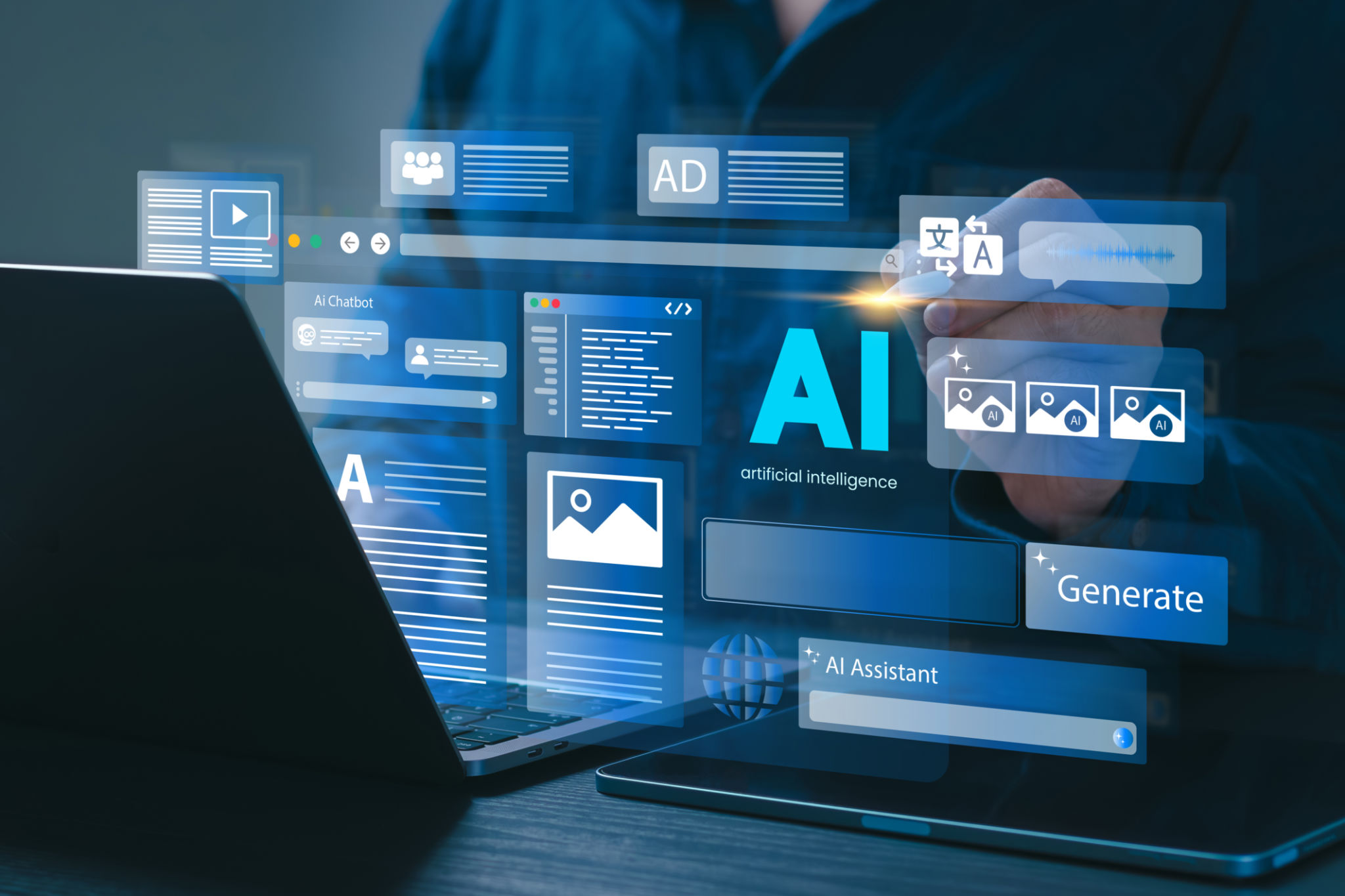Addressing Common Misconceptions About AI in Marketing
Understanding AI in Marketing
As artificial intelligence (AI) continues to make waves in the marketing industry, misconceptions about its capabilities and roles are also on the rise. AI is often seen as a futuristic concept, yet it is already shaping how businesses operate today. Addressing these misconceptions is crucial for marketers to harness AI's full potential.

AI Replaces Human Creativity
One prevalent misconception is that AI will replace human creativity in marketing. While AI excels at analyzing data and automating tasks, it cannot replicate the human touch that creativity requires. Instead, AI acts as a powerful tool that can assist marketers in generating insights and formulating strategies, allowing humans to focus more on creative endeavors.
AI can analyze consumer behavior and predict trends, providing valuable input that can inspire creative campaigns. Thus, rather than replacing creativity, AI complements it, offering a data-driven foundation for innovative ideas.
AI Is Only for Large Corporations
Another common belief is that only large corporations can afford to implement AI in their marketing strategies. This is far from the truth. With advancements in technology, AI solutions have become more accessible and affordable, allowing small and medium-sized businesses to leverage its benefits.

AI tools are available at various price points and complexity levels, catering to businesses of all sizes. From chatbots for customer service to analytics platforms for insights, companies can choose solutions that fit their budget and needs.
AI Will Lead to Job Losses
The fear of job losses due to AI adoption is another widespread misconception. While AI does automate certain tasks, it also creates new opportunities for roles centered around managing AI systems and interpreting data insights. As AI takes over repetitive tasks, marketers can shift their focus to strategic initiatives and creative processes that require human intuition.
The key lies in reskilling and upskilling the workforce to adapt to evolving roles in the AI-driven marketing landscape. Embracing AI can lead to more fulfilling work experiences, with professionals engaging in higher-value activities.

AI Provides Instant Results
Many believe that implementing AI will lead to instant results. However, effective AI integration requires time, patience, and ongoing optimization. Like any technology, AI systems need to be fine-tuned and continuously monitored to achieve desired outcomes.
The successful use of AI involves setting realistic expectations and understanding that results will improve over time as the system learns and adapts to specific business needs.
AI Lacks Ethical Considerations
Some individuals worry about the ethical implications of AI in marketing, fearing it may lead to intrusive or manipulative practices. However, ethical considerations are a fundamental aspect of responsible AI deployment.
Marketers must prioritize transparency, data privacy, and consumer consent when implementing AI strategies. Building trust with consumers through ethical AI use not only enhances brand reputation but also fosters long-term relationships.
The Future of AI in Marketing
In conclusion, understanding and addressing misconceptions about AI in marketing is essential for businesses to thrive in the digital age. By recognizing the true capabilities of AI and integrating it responsibly into marketing strategies, companies can unlock new levels of efficiency and creativity.

As marketers continue to explore the possibilities of AI, embracing its potential will lead to more personalized experiences, better decision-making, and innovative approaches that drive business growth.
